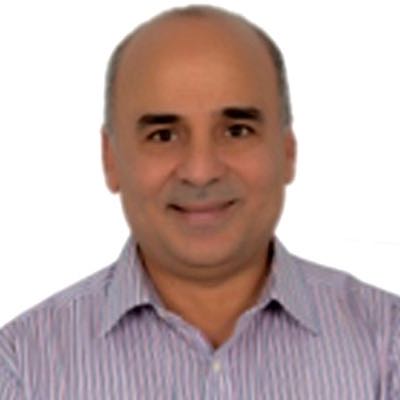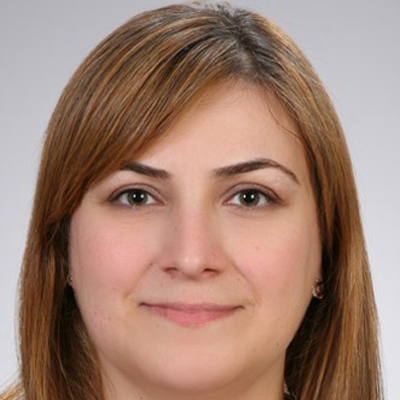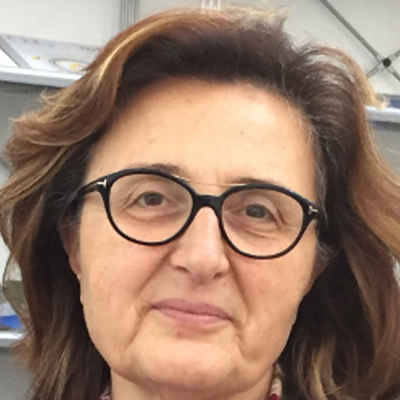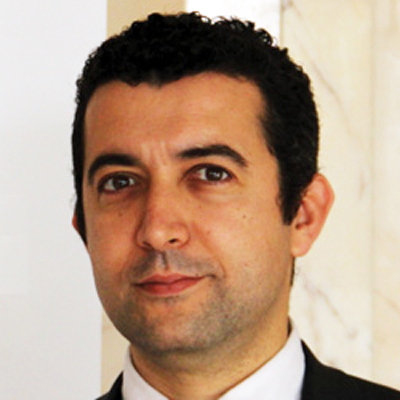In the Mediterranean Basin, a fascinating and diverse culture is shaped by geography, history and shared resources. But growing population creates a range of stresses and strains, and an urgent need to manage risks for a positive outcome.
a range of stresses and strains, and an urgent need to manage risks for a positive outcome.
To explore challenges confronting the Mediterranean nations – both in Europe and the North Africa and the Middle East (MENA) region – TWAS has organized a roundtable to explore North-South issues this month at the 2017 Trieste Next science festival. The event, "Science Diplomacy: A bridge over troubled waters", will take place on Thursday 21 September at 18:00 in the elegant auditorium of Museo Revoltella at via Diaz 27 in the Trieste city centre.
The TWAS roundtable will feature international experts in science and science diplomacy from Turkey, Oman, Italy and Tunisia. It is among the first events to open Trieste Next (21-23 September), this year convened under the theme "Un mare di scienza" (A sea of science).
Trieste, Italy, is a capital of North-South science cooperation – and headquarters to TWAS and its affiliated organisations. The science festival has been held annually since 2011.
The TWAS panel will feature four international experts:
• Thameur Chaibi, director of research at the National Research Institute for Rural Engineering, Water, and Forestry (INRGREF) in Ariana, Tunisia;
• Tuğba Evrim Maden, a researcher in water policy from the Turkish Water Institute;
• Nadia Pinardi, professor in the department of physics and astronomy, Alma Mater Studiorum University of Bologna; and
• Jauad El Kharraz, head of research at the Middle East Desalination Research Center (MEDRC) in Oman. He spent 12 years working at the Euro - Mediterranean Water information System (EMWIS) in France, as Information & Projects Manager where he was responsible for coordinating projects related to water information systems, water management and water innovation.
Italian journalist Alessandra Ressa will chair the event.
Discussions will cover, in particular, the powerful impact that science diplomacy between South and North could exert in the management of environment, water and other resources in the Mediterranean Basin. In addition, the scientists will explore how cooperation can be better used to address population growth, urbanization, and sustainable management in the Mediterranean nations, and what concrete actions might have a positive impact on political and social challenges, including migrations.
"We no longer live in a world where any one country can stand alone," maintains El Kharraz. "Therefore, improving and enhancing our cooperation in areas of common interest is categorically of mutual benefit." MEDRC, where El Kharraz works, is a nonprofit international organization headquartered in Muscat, Oman and mandated to find solutions to fresh water scarcity in the Middle East.
The Mediterranean Sea – and the nations on its shores – face extraordinary challenges. Along its 46,000 km of coastline are 25 nations from three continents and more than 500 million people. They face a range of stresses: pollution, overfishing, and threats to biodiversity, among others. The impact of population growth and geopolitical tension, meanwhile, are helping to a drive wave of migration from the southern Mediterranean countries.
Nadia Pinardi, associate professor of oceanography at the University of Bologna, Italy, has developed operational oceanography in the Mediterranean Sea for the sustainable exploitation of the marine resources and the protection of the marine environment. Since the 1990's, Pinardi has coordinated the development and implementation of monitoring and forecasting in the Mediterranean Sea, as part of the strategy of the Global Ocean Observing System of UNESCO. The final steps of this development have converged into the European Copernicus Marine Environment Monitoring Service-CMEMS that serve a large public and private community (http://marine.copernicus.eu/).

About the "sea forecast" that she has helped shaping, Pinardi says: "We make sea forecasts using mathematical models, then we check and confirm their accuracy with satellite and observations at sea. This allows to monitor and predict sea level, temperature, salinity conditions with important impacts for the ecosystem health and the marine productivity. The CMEMS products give also fundamental information for transport safety, search and rescue, oil spill forecasting and climate impact indicators."
In another example, the Northern part of Africa suffers from poor water resources, with Egypt and Mauritania entirely dependent on across-borders supplies. "The water situation is expected to worsen in the future, due to growing needs," says Thameur Chaibi, from INRGREF. "It is therefore important to make water saving and conservation strategies a key element of global water policies."
Could science diplomacy be a bridge that helps to the challenges? The answer is yes. Tuğba Evrim Maden, an expert in hydropolitics at the Turkish Water Institute, has long addressed the issue of water resources and management in the Middle East in particular in the Euphrates–Tigris basin.
This area, as she explains, has moved from the harmonious relationships of the first half of the 20th century to the escalating disputes over transboundary water use. Diplomats and scientists must work with policymakers in the region to help resolve these issues, Maden says.
During previous editions of Trieste Next, TWAS brought world-class innovators to join discussions focused on key global issues. Among them: Leonida Mutuku, CEO of Intelipro in Kenya, for the 2016 roundtable on the importance of research based on "big data", and Segenet Kelemu, the director general and CEO of the International Centre of Insect Physiology and Ecology's (icipe) in Kenya, for 2015's discussion of agricultural biotechnology.
Cristina Serra

